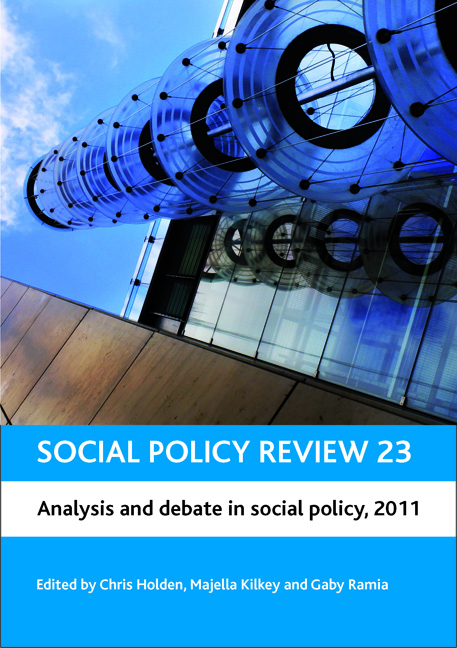twelve - “You’re only going to get it if you really shout for it”: education dispute resolution in the 21st century in England
Published online by Cambridge University Press: 01 September 2022
Summary
Introduction
Education is a field in which there are underlying tensions between individual rights and public resources. Levels of satisfaction with schools and further and higher education institutions expressed by users seem to be high in England (Ofsted, 2007; Ivens, 2008; HEFCE, 2010) but grievances are common. As education issues can impact directly on the interests of individual children they are especially likely to be viewed as serious by parents, and thus grievances have a tendency to be transformed into disputes (Adler et al, 2006, pp 44-5). Parents will ‘“fight for the rights” of their children’ (Ofsted, 2010, p 6; see also Lamb, 2009). This was true of Ms X, whose comments are quoted in the title to this chapter. She was interviewed for my research in England into dispute resolution and special educational needs (SEN), part of an Anglo-Scottish project (jointly with Sheila Riddell) funded by the Economic and Social Research Council (ESRC) (RES-062-23-0803).
Ms X's child had dyslexia but the local authority initially refused to provide the extra hours of specialist teaching support per week that Ms X sought for her. Ms X decided not to appeal to a special needs tribunal due to the cost of legal representation which she mistakenly thought was essential. In her negotiations, however, she was supported by her “lawyer trained” sister. She refers to “fighting all the way”. Although the local authority eventually agreed to make four hours of extra provision per week, Ms X had, in her words, to “really push for it”, and she added: “that's not right, that's not fair is it? Because there's many folks out there that frankly do deserve it”.
This highlights several concerns. First, so far as procedural justice is concerned, Ms X's mistaken view as to the necessity for representation shows the existence of potential barriers (due to ignorance) to effective access to formal dispute resolution mechanisms. Second, a just outcome (substantive justice) may depend on the capacity and tenacity of claimants acting privately as much as on the inherent quality of the decision maker. But, at the same time, issues of distributive justice and equity may also arise in such cases, since the granting of some claims could mean that fewer resources are available for allocation to less fortunate but possibly equally meritorious claimants.
- Type
- Chapter
- Information
- Social Policy Review 23Analysis and Debate in Social Policy, 2011, pp. 233 - 256Publisher: Bristol University PressPrint publication year: 2011

